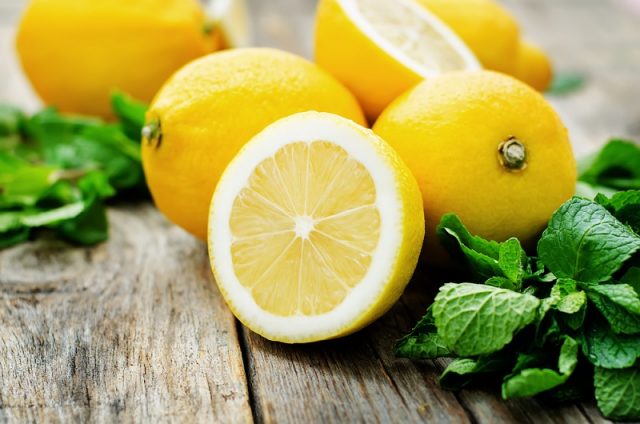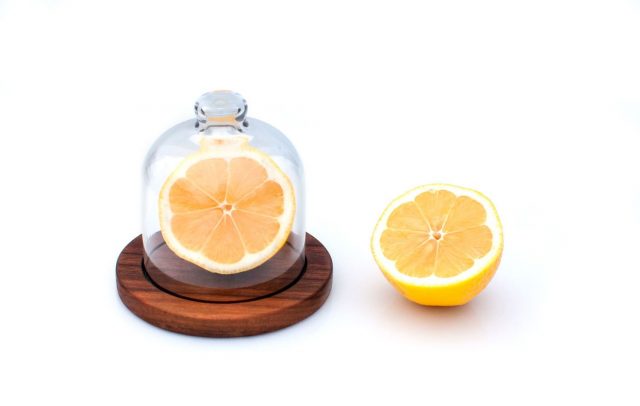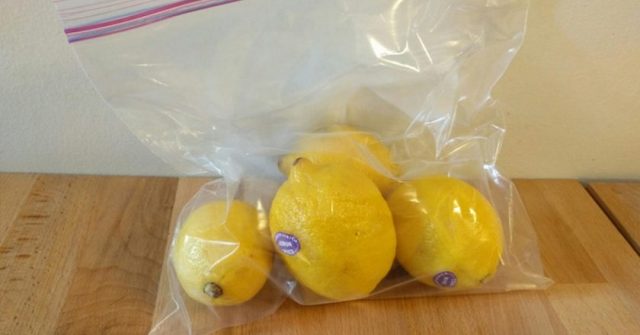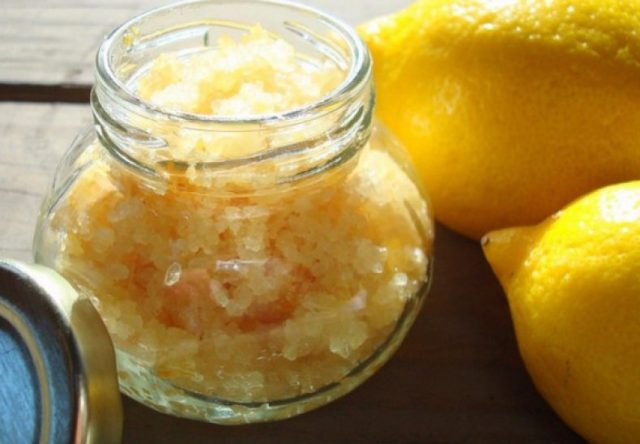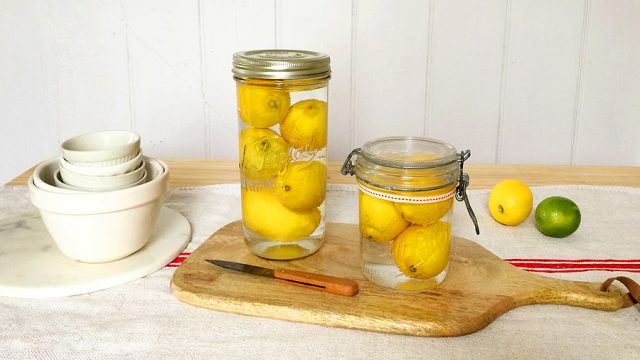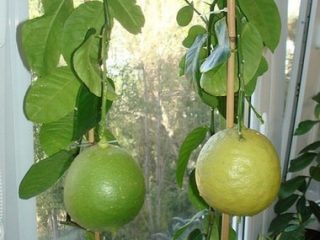Content
You can store lemon at home from 1-2 weeks to 4-5 months. Shelf life depends on the quality of the fruit purchased, the type of container in which the fruit is stored and where it is located: citrus fruits can be stored in the refrigerator, cellar or cupboard if it is dried zest. Contrary to popular belief, long-term storage of lemons is possible without the use of chemicals or natural preservatives.
How long can you store lemon?
When storing lemons at home, you can increase the shelf life of the fruit to 4-5 weeks if you keep them in the refrigerator. At the same time, it is better to choose not a freezer as a placement location, but a department for fruits and vegetables or a lemon maker.
At room temperature, lemons retain their beneficial properties and attractive appearance for 6-7 days, no more. The higher the room temperature, the faster the peel and pulp of citrus fruits begin to dry out.
It is even more difficult to maintain the freshness of fruit cut into slices.In this state, the fruit quickly loses moisture and becomes unusable within 1-2 days.
Grated zest and freshly squeezed lemon juice will keep in the freezer for 4 to 6 months.
How to choose the right lemons for long-term storage
To prevent lemons from spoiling in a matter of days, it is not enough to store them according to all the rules - a lot depends on the quality of the fruit. When choosing fruits, you should adhere to the following recommendations:
- damaged goods deteriorate quickly, so do not take dented or scratched fruits;
- if the fruit yields easily when squeezed, this means that it has been pre-frozen, which negatively affects the aroma and beneficial properties of the product;
- Lemons that are too soft may turn out to be rotten;
- Too hard a fruit texture indicates its immaturity.
What containers are suitable for storing lemon?
To keep lemons fresh at home for as long as possible, they are placed in a special container. The best ways to store this product are:
- sealed glass containers (for example, lemongrass);
- plastic containers;
- zip bags for fruit.
Containers with citrus fruits are best stored in the refrigerator in the vegetable compartment at a temperature of 6-8°C.
How to properly store lemons at home
How long the fruits will remain fresh directly depends on the storage conditions of the lemons.It is recommended to adhere to the following rules:
- Lemons must be stored at a temperature of 6-8°C. A refrigerator or cellar is best suited for this. In winter you can put it on a glassed-in balcony. The main thing is not to forget to cover them in severe frosts.
- The product should not be kept in a room with high humidity, otherwise it will begin to rot.
- The fruits should not be exposed to direct sunlight. It is better to put them in a dark, dry place.
- Under no circumstances should citrus fruits be kept in plastic bags at room temperature. In such conditions they deteriorate very quickly.
- Fruits should not be placed on a shelf with other products. It is better to put them in a special compartment for vegetables and fruits.
- Fruits should not be placed in the freezer. After freezing, they lose their pleasant aroma and richness of taste.
How to store lemon in the refrigerator
Without any additional protective measures, the shelf life of fruits in the refrigerator is about 2 months. This figure can be increased to 4 months if you adhere to the following rules:
- It is recommended to wrap large quantities of fruits in parchment to prevent drying out. If one lemon has already been purchased spoiled, rot or disease will not spread to other specimens under such storage conditions.
- Before placing the fruits in a plastic bag or parchment, their peel should be greased with vegetable oil. The oil film slows down the evaporation of moisture.
How to store cut lemons in the refrigerator
A cut lemon is more difficult to store - in this form it begins to dry out much faster.You can increase the shelf life to 7 days by placing the fruit in a lemongrass. There are also a number of small tricks that can extend its “life”:
- cut lemon retains freshness well if you place it cut side down on a plate greased with vinegar and cover with a glass;
- You can keep sliced lemon fresh for a little more than a week by using a napkin soaked in vinegar and wrapping the fruit in it;
- cling film does a good job of restraining the evaporation of moisture from the cut of the fruit if it is hermetically sealed;
- the cut area can be greased with a small amount of egg white;
- pour water into a shallow container and place the fruit in it, but always with the cut side up, so that the water does not flood it (otherwise the fruit will quickly rot).
Separately, it is worth highlighting the following method of storing lemon cut into slices: the pieces are put into a jar or other glass container, sprinkled with salt, bay leaf and pepper. The disadvantage of this method is that the specific aroma of pepper and bay leaf will be added to the lemon smell. In addition, the product will become unsuitable for making dessert.
How to store peeled lemons
Citrus fruits that have been zested lose moisture very quickly. To slow down the drying of fruits, they are stored in airtight glass containers. As an additional measure of protection, the vessel is filled to the brim with water.
How to preserve lemons without zest
It is best to keep the peeled fruit in a glass container filled to the top with water. The following products are used as preservatives:
- salt;
- sugar;
- honey.
If the fruit will later be used to prepare sweet dishes, it is better to use honey or sugar as a preservative. If it is included in meat or fish dishes, salt is more suitable for preservation.
How to store lemon zest
Lemon zest is made in the form of shavings, which are removed from the top layer of the peel, or powder. In the first case, the product can be frozen, but most often the zest is dried. The frozen mass is placed in the refrigerator. Dry shavings or powder are poured into a dry glass container and the container is placed in a room with good air ventilation.
How to store grated lemon
To grate the lemon, it is first frozen. After this, the grated mass is distributed into special portioned bags or containers. It is important that the container for storing the product is hermetically sealed.
How to preserve lemons for a long time
There are several ways to maximize the shelf life of lemons. Some of the simplest and most effective include the following:
- Fresh fruits can be stored in a deep bowl of water for about 3-4 months.
- The beneficial properties and presentation of the fruits are preserved for a long time if you put them in a jar of water. The fruits are poured with water so that it completely covers them, after which the jar is put in the refrigerator. It is not recommended to keep the jar indoors, but you shouldn’t put lemons in the freezer either. It is a heat-loving crop that freezes and softens at temperatures below 6°C.The complexity of the method lies in the fact that the water in the jar needs to be changed every 2-3 days.
- Lemons remain fresh for several months if they are covered with wax paper, but this method is not an easy one. In addition, the price of wax is quite high. On the other hand, the effectiveness of the preservative properties of this material is undeniable. The fruits are wrapped in wax paper, each fruit separately, after which they are placed in a deep glass or plastic container for storage. It should close tightly.
- Instead of wax paper, you can use natural wax. In this case, the substance is melted using a water bath. Dip a brush into softened wax and cover the surface of the fruit with a thin layer of preservative. As soon as the wax hardens, the lemons are placed in a container and stored in the cellar or refrigerator. To prevent the fruits from acquiring an unpleasant aftertaste, it is advisable to ventilate the container from time to time.
- The vacuum method is very effective, but the process of pumping air out of the container can cause some difficulties. Using this method, lemons are placed in a large glass jar, but do not fill it entirely until it stops. The limit is ½ of the total volume of the jar. A low candle or candle stub is placed on the top fruits. The wick is set on fire, after which it is necessary to close the container tightly. Ultimately, the combustion process will “eat up” all the oxygen in the vessel. A signal that the jar has run out of air will be the extinguishment of a candle. In such a vacuum environment, lemons are stored for several months.
How to preserve lemons for the winter
You can keep lemon fresh for a long time in the cold winter months in the refrigerator if you choose the right container, but this method is best suited for small quantities of fruit. It is inconvenient to store significant volumes of fruit in the refrigerator - they will occupy the entire compartment for fruits and vegetables.
An excellent way to preserve the quality of lemons is to place the fruits in fine sand. It is convenient to use as a covering insulating material due to its excellent hygroscopic properties, i.e. ability to prevent premature drying of fruits. This occurs due to the fact that grains of sand absorb excess moisture from the air.
Before sprinkling sand on the fruits, it must be thoroughly calcined in the oven. To do this, sand is poured into a plastic or glass container in a layer no more than 3 cm thick. After processing, lemons are placed in it and filled in so that the sand rises 2-3 cm above the fruit.
You can increase the efficiency of storing fruits in sand by using thick paper (parchment) in which each fruit is wrapped. If the volume of the container allows, the fruits are laid out in several layers.
An alternative way to preserve fruits in winter is to dry thinly sliced lemon slices. In this form, the product perfectly retains its original vitamin composition and can subsequently be used as a food additive for tea.
Dry lemon slices naturally for a week or 5-6 hours at a temperature of 50°C. Store dried slices in a glass container, plastic container or paper bag.The main thing is to keep the product in a dry, dark place.
You can learn more about the features of long-term storage of lemons from the video:
Conclusion
Storing lemon at home is quite simple if you choose the right quality product, container and temperature. It is important to remember that if the fruits have spoiled for some reason, they are unsuitable for consumption. Even if you cut off a moldy or rotten section of the fruit, the rest of it remains toxic. The harmful flora it contains can cause serious damage to health.
